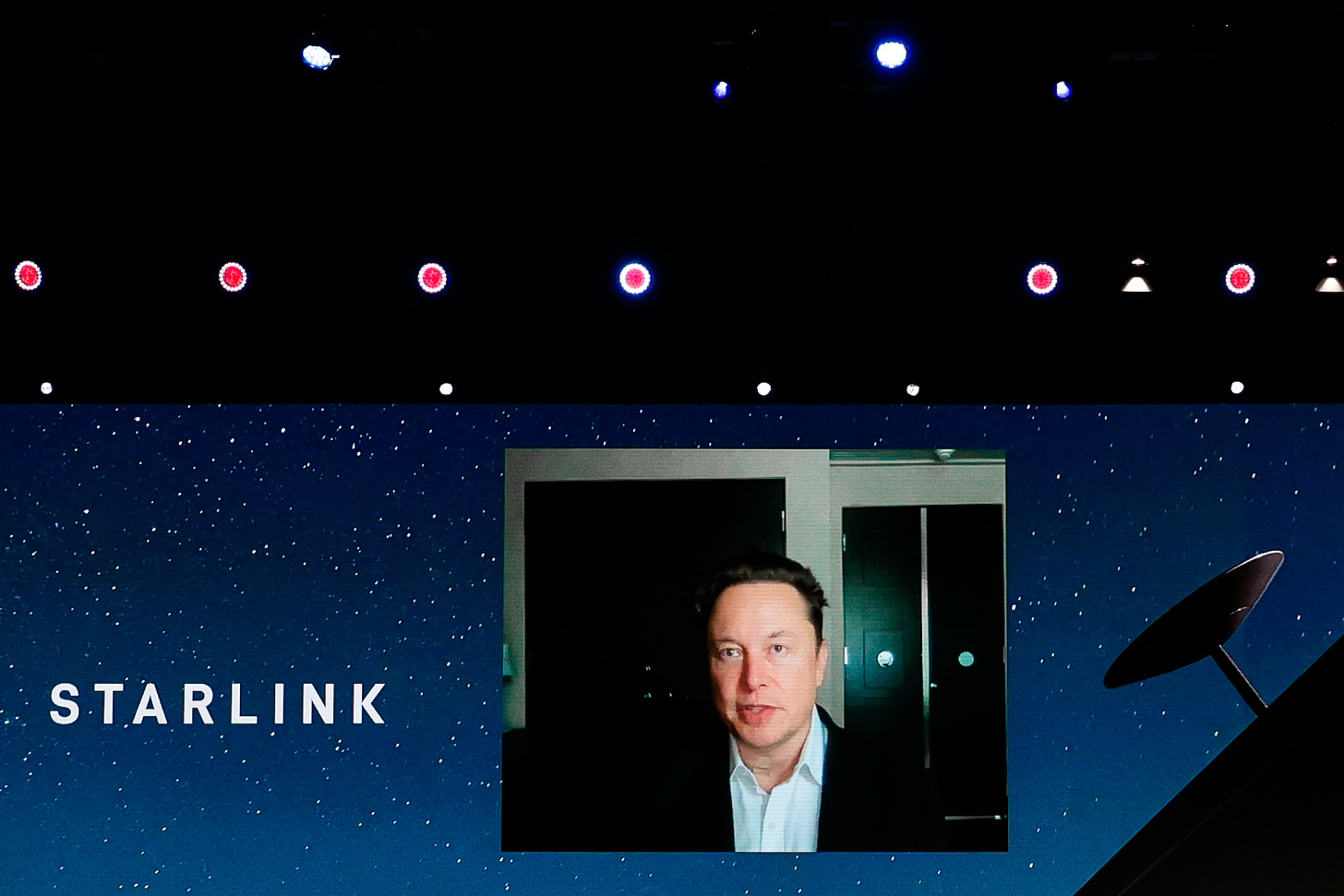
WINSTON CHURCHILL’S INDEFATIGABILITY during the Second World War was legendary. For the causes of national survival and Allied victory, he could—with the help of his afternoon naps and his liquid fortification—work very long hours. He expected the same from those around him, including his American counterparts. During the Quadrant conference in Quebec in 1943, with the prime minister, President Roosevelt, and others meeting late into the night to discuss war plans, U.S. Secretary of State Cordell Hull excused himself to go to bed. Churchill objected, protesting that there was still work to be done: “Why, man, we are at war!”
This story came to mind when I heard the recent disclosures of Elon Musk’s decisions regarding Ukrainian access to SpaceX’s Starlink satellites. Last October, there was an emergency request from Ukrainian authorities to activate the satellite-communications system, which Ukraine had been using since Russia invaded early last year, all the way to the Crimean port city of Sevastopol. The purpose of this request was evidently to empower an operation using Ukrainian submarine drones to sink Russia’s Black Sea naval fleet at anchor. Had he acceded to the Ukrainian request, Musk has tweeted, “SpaceX would be explicitly complicit in a major act of war and conflict escalation.”
One can only wish that someone in Musk’s orbit had bothered to point out the obvious fact: Why, man, they are at war!
While Musk has taken on the responsibility of deciding Ukraine’s fate, determining himself what actions constitute conflict escalation, and restricting the battlefield strategy of a U.S. ally at his own discretion, it’s worth asking who voted him into a position of such power—and how elected officials might curtail his power in the future.
IN RESPONSE TO THE FIRESTORM of controversy that erupted when Musk’s decision came to light, the tech mogul indignantly contended that what the Ukrainians had planned was a “Pearl Harbor-like attack.” This is moral and political idiocy. Imperial Japan’s strike on Pearl Harbor was a surprise attack on the United States while at peace. Is it possible that a private citizen with decisive influence over the war in Ukraine believes that any operation involving the sinking of ships resembles the most infamous historical attack on a navy at anchor? It would appear so.
Musk has interfered in Ukraine’s national defense in the midst of an unprovoked and dastardly war launched to end Ukrainian sovereignty. The Pearl Harbor moment in this war, in other words, came on February 24, 2022, when Russian forces acting on Vladimir Putin’s command moved on Kyiv in a naked act of aggression. Ever since, Ukraine’s war measures have been taken to end the threat to its people and restore its national sovereignty. Sinking the Russian fleet at Sevastopol is a necessary precondition to those legitimate objectives.
That Musk could not countenance an act of self-defense on the grounds that it would implicate his company in a major act of war is a fallacy. The Russian fleet at Sevastopol is itself implicated in major acts of war—a war for which, it should go without saying, the Russian side is solely responsible. The Black Sea fleet has even been implicated in war crimes, striking civilians and civilian infrastructure with abandon. Musk apparently likes to think that the decision kept him above the fray or left him with “clean hands”; to the contrary, it was an act of moral complicity with the invaders.
Musk has insisted that his decision to thwart Ukraine’s military operation in Crimea was rooted in prudence. He called his biographer Walter Isaacson and told him there was a “non-trivial possibility” that the sea-drone attack could lead to a nuclear war. According to Isaacson, Musk had recently spoken with Russia’s ambassador in Washington, who had warned him explicitly that any attack on Crimea would escalate the war into a nuclear conflict.
This presumption has subsequently been tested and found wanting. One month after Musk refused Kyiv’s request, Ukrainian forces mounted a deliberate and devastating attack on the Russian navy at Sevastopol. It has continued to do so with increasing precision and sophistication, including just this week when an attack using British cruise missiles wreaked havoc on one landing ship and one submarine stationed in the Sevastopol Shipyard drydocks. At the time of this writing, nuclear war has not yet broken out. It is clear now that the nuclear saber-rattling was only Russian propaganda, and that Musk fell for it.
After the revelation that he actively thwarted what might have been a decisive military operation against the Russian Black Sea fleet, Musk will find it difficult to be acquitted on the charges of being a useful idiot of Russian imperialism. If this was action was taken contrary to the wishes or even without the express permission of the United States government, the Biden administration should strongly consider nationalizing Starlink.
The alternative scenario—that the United States approved of Musk’s veto of the Ukrainian military operation—would be less of a personal scandal and more of a strategic blunder. It would indicate what we already know to be true: that U.S. leaders have been helping Kyiv prosecute this struggle with undue caution, to the detriment of both Ukrainian lives and the prospects of Ukrainian victory. Musk is not alone in failing to understand that Ukrainians are at war.





